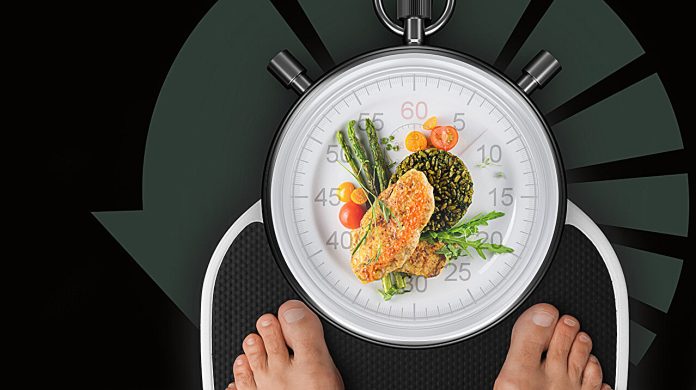
Time-restricted eating is becoming a popular way to lose weight, but does it really work?
A new study from the University of Mississippi suggests it can—especially when paired with regular exercise.
Time-restricted eating is a type of intermittent fasting where you only eat during a set time window each day, like eight hours, and fast for the remaining 16.
Unlike other diets, it doesn’t require you to count calories or avoid certain foods.
Many people find it easier to stick with because it’s simple: eat during your set hours, and don’t eat outside of them.
In the new study, researchers looked at data from 15 past studies to better understand how time-restricted eating works when combined with exercise.
The results, published in the International Journal of Obesity, showed that people who followed an eight-hour eating window and exercised regularly lost more body fat than those who only exercised.
“We saw that people who used both time-restricted eating and exercise had greater fat loss and lower body fat percentages,” said Dr. Nadeeja Wijayatunga, assistant professor of nutrition. “And importantly, they didn’t lose lean mass—like muscle—which is very important for overall health and metabolism.”
That’s a big deal, because one concern about fasting diets is the risk of losing not just fat, but also lean tissue. Muscles help keep your metabolism working properly, and losing muscle can affect your strength, energy, and movement.
The study focused on healthy adults who were already fit and exercising regularly. While the fat loss differences between the groups were small, the researchers say it’s still meaningful.
“If you can help already lean and athletic people lose fat without losing muscle, that’s significant,” said Michael Hays, a dietitian who co-led the study.
However, the researchers caution that more studies are needed—especially in people who aren’t as active or healthy. “We don’t yet know how this approach would work for people who are overweight, older, or not exercising regularly,” Dr. Wijayatunga said.
So, is time-restricted eating worth trying? It might be—especially if you also include regular physical activity. But it’s not a magic solution, and it may not work for everyone. The most important thing is to find healthy habits you can stick with in the long run.
“If you’re thinking about trying it, talk to a health professional,” said Wijayatunga. “Find a routine that fits your lifestyle and supports your health—not just your weight.”
If you care about weight loss, please read studies that avocado could help you lose weight and belly fat, and a keto diet for weight loss can cause flu-like symptoms.
For more information about health, please see recent studies about unhealthy plant-based diets linked to metabolic syndrome, and these antioxidants could help reduce dementia risk.
Source: University of Mississippi.



